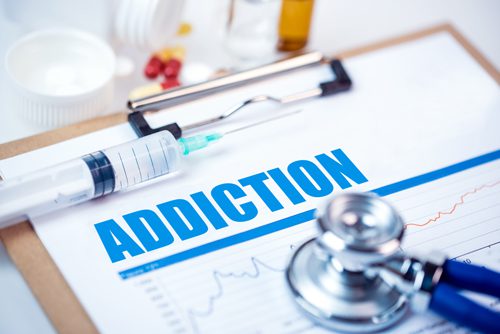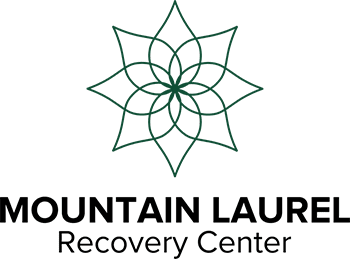
The Nature of Addiction
The American Society of Addiction Medicine offers this definition of addiction:
Addiction is a primary, chronic disease of brain reward, motivation, memory and related circuitry. […] Addiction is characterized by inability to consistently abstain, impairment in behavioral control, craving, diminished recognition of significant problems with one’s behaviors and interpersonal relationships, and a dysfunctional emotional response.
This disease concept of addiction implies that people who are addicted are unable to make good choices. Some medical professionals disagree. An article in Scientific American lays out the case against the disease concept, concluding that “[…] if by ‘disease’ we mean that there are brain changes that lead to lack of choices, then there is ample evidence to dispute this view.”
Regardless of disagreements over the word “disease,” virtually all medical professionals agree that addiction changes brain circuitry, creating powerful physical cravings that make quitting difficult. Still, many of those who are addicted find a way out – whether through quitting on their own or seeking treatment. Clearly, they are able to make a choice, even in the throes of addiction, to be healthy.
So what about those who struggle with addiction their whole lives, never seeking help or seeming to want to get better? Are they choosing to be addicted, just as others choose to get well?
The easy answer is yes, everyone has the power to choose the path their life will take. But consider the complexity of what we call “power to choose.” The decisions we make, even if they appear to be made freely, are affected by a variety of factors, especially in the case of addiction.
The Nature of Choice
A variety of internal and external factors influence choice when it comes to addiction.
Genetics: According to the Genetics Science Learning Center at the University of Utah, “It may be harder for people with certain genes to quit [using] once they start. Or they may experience more severe withdrawal symptoms if they try to quit.” Genetics does not determine outcomes, but it does influence our ability to choose.
Chronic pain: Many people who become addicted to heroin or prescription opioids begin using because of physical pain. Because opioids, like most drugs, become less effective over time, people must take more of them to feel the same amount of pain relief. It’s hard to think rationally and make careful decisions when the body is in pain.
Mental Illness: It’s also hard to make rational decisions when we are in emotional pain. People who are afflicted with mental illnesses like depression, anxiety, OCD, and bipolar disorder can more easily succumb to drug or alcohol use to ease their anxiety and their emotional pain. They still have a choice of whether to use, but their ability to choose well is compromised by their brain chemistry.
Socioeconomic status: National Institute of Health research shows that income, education, and minority status affect the risk factors for drug use and addiction. In many cases, people from low-income households and/or minority populations simply cannot access or afford the healthcare or education that would help them overcome addiction. Freedom of choice doesn’t work if the choices themselves aren’t free or affordable for everyone.
Environment: This is a big category, comprising everything from the experience of trauma to a person’s home life as a child, to opportunities for education, to how well we fit in with our surrounding culture. Again, we all have free will no matter our situation—but a person who grew up with addicted parents, who suffered abuse, who didn’t have anyone to look up to, who didn’t receive any of the advantages or privileges that so many of us take for granted…that person will very likely have a harder time making positive life choices.
Changing Blame to Compassion
Both drug addiction and diabetes have been designated as chronic illnesses, yet they receive much different responses. We tend to see the person addicted to drugs as a selfish, undisciplined criminal while we see a person with diabetes as having a physical malfunction that makes their body unable to process sugar.
Why are we so quick to blame some people and not others? And why do we feel morally superior to those whose vices are more obvious than ours? We all make unhealthy choices sometimes. We all have preferred ways to escape from the pain or boredom of reality. Just because our life circumstances made it easier for us to choose video games or sugar or ultramarathons instead of drugs or alcohol as an escape does not mean we’re morally superior.
Addiction is powerful. It’s not about pleasure; it’s about pain relief. Withdrawal symptoms vary depending on the substance, but they begin between 8 and 24 hours after the last use and can be horrific: intense cramping, nausea, vomiting, fever, panic attacks, confusion, rapid heartbeat, and even hallucinations and seizures.
People who are addicted don’t want to be addicted. They want to be healthy, to be able to engage with the world. But the voice of addiction is full of fear or self-hatred; it tells you that being addicted is easier and less painful than getting healthy, that life is too hard to handle on your own. It provides myriad rationalizations in an effort to preserve its power over you.
Those who are in recovery from addiction have more will power, resolve, and courage than most of us. They have been in the grips of a powerful compulsion and have conquered it. The more we can replace blame with understanding, empathy, and compassion, the more we can help each other choose healthy lives.
If you or a loved one have questions about treatment for addiction, please contact Mountain Laurel Recovery Center today.
